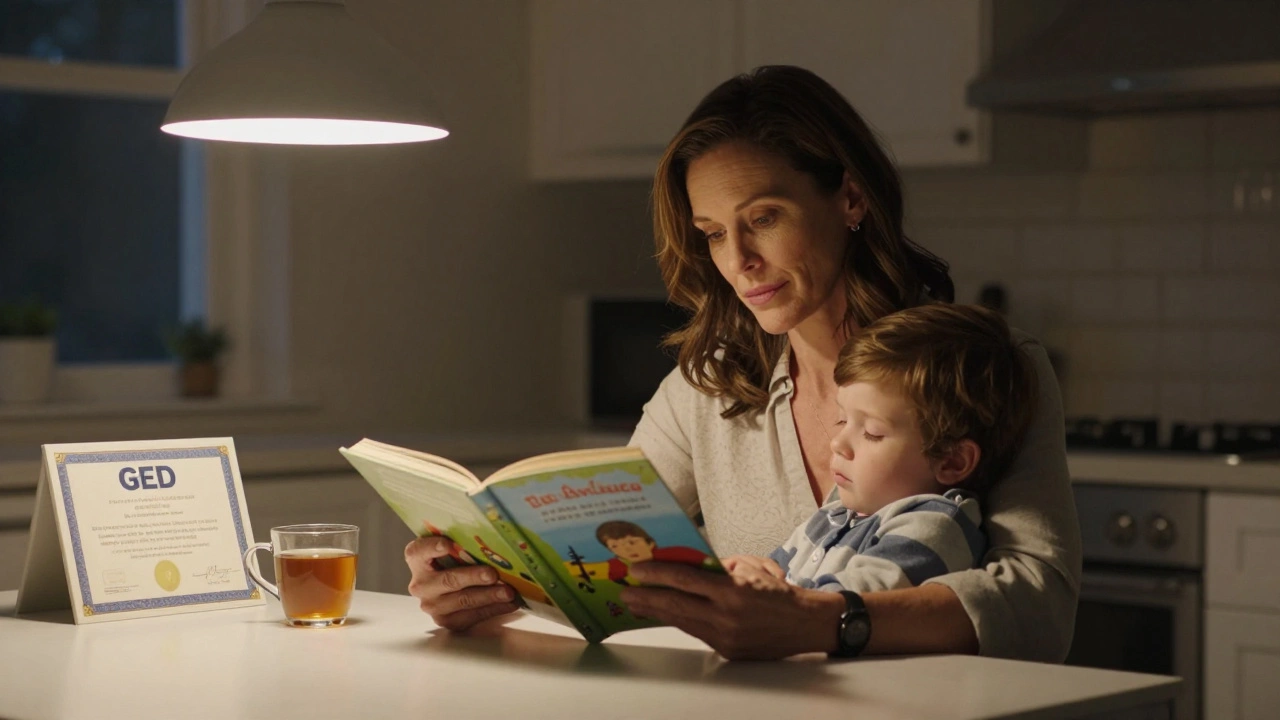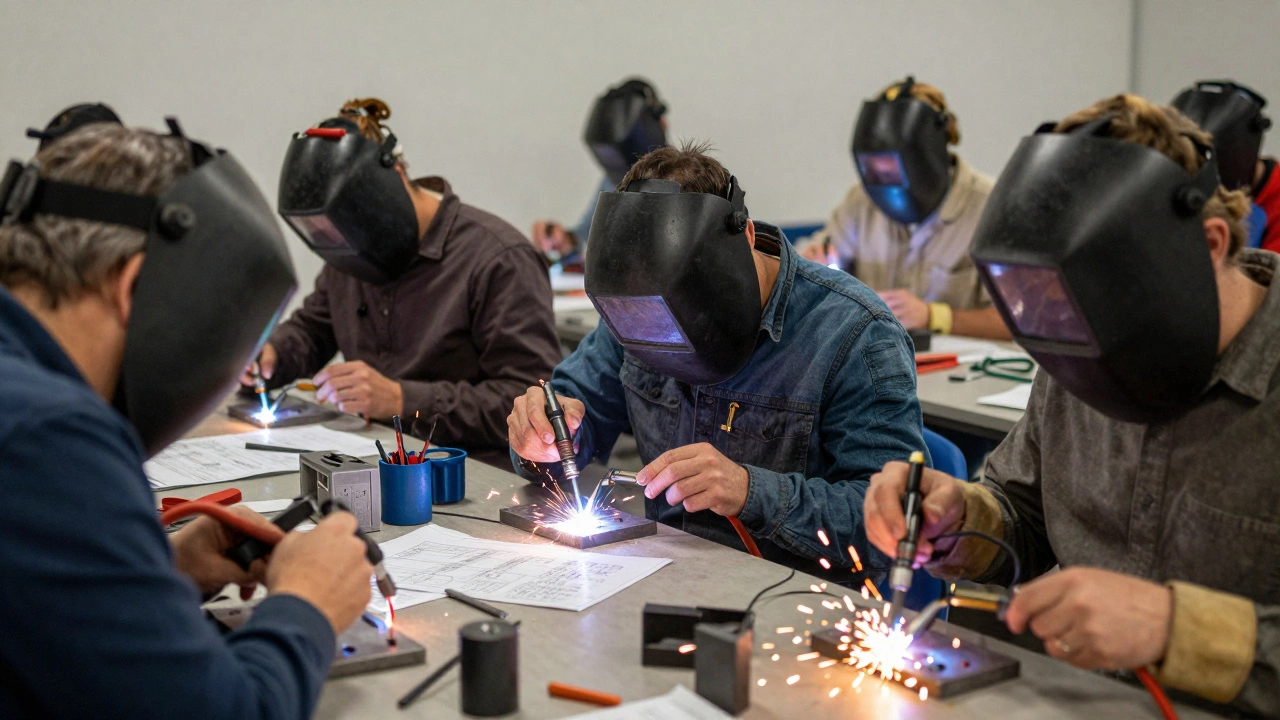Adult Education: Learn, Grow, and Thrive at Any Age
Ever feel like you missed the "learning window" because school was years ago? Guess what – the window never really closes. Adult education is all about picking up new skills, sharpening old ones, and staying curious, no matter your age or background.
Why Adult Education Matters
First off, learning as an adult does more than add a certificate to your wall. It lifts your confidence, opens doors to better jobs, and even keeps your brain sharp. Research shows people who keep learning are less likely to face memory loss and more likely to stay socially active. That’s because new challenges force the brain to form fresh connections.
Second, adult education is flexible. You can study online while watching TV, join a weekend workshop, or sign up for a night class at a local college. The variety means you can fit learning around work, family, or any other commitments.
Third, the world is changing fast. Tech, digital marketing, data analysis, and even basic coding are now common requirements in many jobs. A short‑term certificate in cloud computing or cybersecurity, for example, can boost your salary within months. The key is to pick a course that matches what employers are looking for right now.
How to Get Started
Start with a clear goal. Ask yourself what you want to achieve – a promotion, a new hobby, or simply staying mentally active. Write that goal down and keep it visible.
Next, explore the options around you. Online platforms like Coursera, FutureLearn, or local community colleges offer courses that range from a few weeks to several months. Look for programs that list clear outcomes, such as "learn to build a simple website" or "master basic financial budgeting".
Third, set a realistic schedule. Even 30 minutes a day adds up. Block a specific time slot – maybe after dinner or during a morning commute – and treat it like any other appointment.
Finally, stay accountable. Join a study group, share your progress on social media, or tell a friend what you’re learning. Talking about what you’re doing reinforces the material and keeps you motivated.
Remember, adult learning isn’t one‑size‑fits‑all. Some people thrive on hands‑on projects, others prefer reading or watching videos. If a method feels dull, switch it up. The 70‑20‑10 model can help: aim for 70% practice, 20% learning from others, and 10% formal study.
Real‑world examples make it easier to see the impact. Jane, a 45‑year‑old nurse, completed a short‑term certificate in health informatics and landed a role managing electronic records, earning a 15% salary boost. Tom, 62, joined a local art class, rediscovered his love for painting, and now sells pieces at community fairs, turning a hobby into extra income.
Bottom line: adult education is a powerful tool you can use right now. Pick a goal, find a flexible course, schedule a little time each day, and stay connected with others. Whether you want a new career, a fresh hobby, or just a sharper mind, the path is open – you just have to take the first step.
How to Motivate Adult Learners to Learn
Motivating adult learners isn't about rewards or pressure-it's about relevance, respect, and real-life connections. Learn how to turn resistance into engagement by focusing on autonomy, progress, and identity.
MoreWhat Is the Process of Adult Education?
Adult education is a personal, often invisible journey of learning after childhood. It’s driven by real-life needs-not grades-and includes everything from literacy to career training. Success comes from support, relevance, and small, consistent progress.
MoreHow to Start Teaching Adults: A Practical Guide for New Instructors
Learn how to start teaching adults with practical strategies that focus on real-life goals, respect for experience, and small, meaningful steps. No teaching degree needed-just empathy and consistency.
MoreWhat Are the Major Principles of Adult Education? Explained Simply
Adults learn differently than children. Discover the six core principles of adult education-relevance, experience, control, motivation, doing, and respect-that make learning stick for grown-ups.
MoreWhat Is the Fundamental of Adult Learning?
The fundamental of adult learning is not about teaching methods-it's about relevance, autonomy, and real-life purpose. Adults learn best when they control their path and see immediate value.
MoreWhat Is the 90-20-5 Rule for Adult Learning?
The 90-20-5 rule for adult learning says 90% of knowledge comes from doing, 20% from talking about it, and only 5% from lectures or videos. Learn how to use it to retain more and waste less time.
MoreWhat Is a Key Principle of Adult Learning That Suggests Adults Learn Best?
Adults learn best when they understand why something matters, can use their experience, and apply knowledge right away. This is the core of andragogy-the science behind adult learning.
MoreWhat Are the 4 Learning Styles and How to Use Them as an Adult Learner
Discover the four learning styles - visual, auditory, kinesthetic, and reading/writing - and how adult learners can use them to study smarter, retain more, and stop feeling stuck. Real strategies for real life.
MoreEffective Ways to Teach a Slow Learner Adult
Discover practical steps to effectively teach slow‑learning adults, from individualized plans and chunking to assistive tech and growth‑mindset coaching.
MoreHow to Get a Degree Faster: Accelerated Strategies for 2025
Learn practical ways to finish a degree faster in 2025: credit‑by‑exam, competency‑based programs, summer sessions, dual enrollment, and more.
MoreEasiest Certificate Courses You Can Complete Quickly
Discover the truly easiest online courses to earn fast certificates, see top picks, enrollment steps, pros, cons, and a handy FAQ for quick skill boosts.
MoreWhich Short-Term Course Has the Highest Salary in 2025? Top Fast-Track Certificates That Pay
Want big pay from a short course? See which 8-24 week certificates lead to the highest salaries in 2025, with real ranges, timelines, ROI, and a no-nonsense plan.
More











